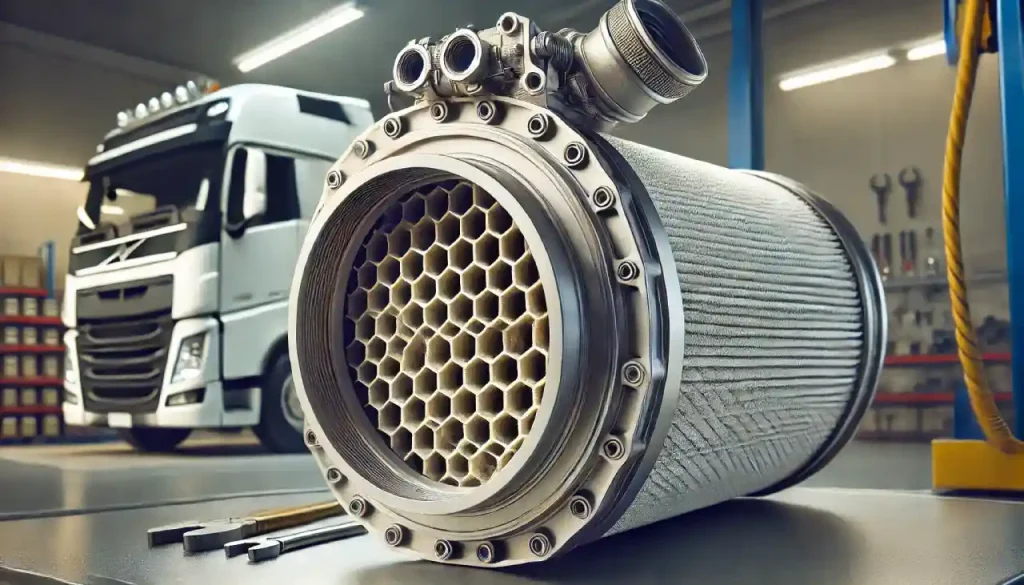In recent years, diesel vehicles have been the backbone of many UK businesses, especially in logistics, construction, and delivery sectors. With tighter emissions regulations and increasing environmental awareness, managing diesel particulate filters (DPFs) efficiently has become crucial for fleet operators across the country. Whether it’s routine maintenance or dealing with serious issues like DPF replacement, proactive fleet DPF management can save your business time, money, and regulatory headaches.
Understanding the Importance of DPF in Diesel Vehicles
The Diesel Particulate Filter, or DPF, is a vital emissions control device fitted to most modern diesel vehicles. It captures harmful soot and particulates from exhaust gases, helping reduce pollution and improve air quality. However, DPFs are prone to clogging if not properly maintained, especially in vehicles frequently used for stop-start urban driving.
For fleet operators, the stakes are even higher. A blocked or malfunctioning DPF can lead to costly downtime, reduced fuel efficiency, and, in worst cases, expensive DPF replacement. This is why fleet DPF management has emerged as a specialised area of vehicle maintenance for UK businesses.
The Rising Need for Fleet DPF Management in the UK
The UK government’s environmental policies, including the Ultra Low Emission Zone (ULEZ) in London and other Clean Air Zones across cities, place added responsibility on commercial vehicle owners. Failure to comply with emission standards can result in fines and restricted access to key urban areas.
For fleets, this means maintaining every vehicle’s DPF system in optimal condition. Here’s why fleet DPF management should be a top priority for UK businesses:
- Cost Control: Proactive maintenance reduces the risk of unplanned DPF replacement and repairs, which can be expensive.
- Regulatory Compliance: Ensures all vehicles meet emissions standards, avoiding penalties.
- Operational Efficiency: Minimises downtime by catching issues early, keeping vehicles on the road.
- Environmental Responsibility: Supports businesses in reducing their carbon footprint and improving public image.
When is DPF Replacement Necessary?
Despite best efforts in maintenance, sometimes a DPF replacement becomes unavoidable. Typically, this happens if the filter has been damaged or is irreparably clogged.
Signs that a DPF might need replacement include:
- Persistent warning lights on the dashboard
- Frequent loss of engine power or performance
- Excessive smoke or unusual exhaust smells
- Repeated failures of regeneration cycles
It’s crucial for fleet managers to work with trusted service providers who can accurately diagnose these issues and advise when DPF replacement is genuinely necessary versus when cleaning or repair might suffice.
Best Practices for Fleet DPF Management
Managing DPFs across a large number of vehicles can be complex, but the right approach can save a fleet substantial costs. Here are some best practices widely adopted by UK fleet operators:
- Regular Inspections and Diagnostics: Scheduled DPF checks using advanced diagnostic tools can catch problems early.
- Proactive Cleaning Programmes: Routine cleaning prolongs the life of the filter and avoids blockages.
- Driver Training: Educating drivers on optimal driving habits, such as longer motorway runs to aid natural regeneration, helps maintain DPF health.
- Data Monitoring: Using telematics and fleet management software to track DPF status in real time.
- Partnering with Specialists: Engaging with expert providers offering bespoke fleet DPF management solutions ensures professional handling of all issues.
The Economic Impact of Ignoring DPF Issues
For UK businesses, ignoring or delaying DPF maintenance can lead to significant financial losses. Unplanned DPF replacement costs can run into thousands of pounds per vehicle, not including the expense of vehicle downtime or penalties for failing emission standards.
Moreover, poor vehicle efficiency due to DPF problems increases fuel consumption, which is particularly critical given current fuel price volatility in the UK. A well-managed fleet can expect smoother operations and reduced overall running costs.
Innovations in Fleet DPF Management
With technology advancing rapidly, several innovations are helping fleet operators in the UK manage DPFs more effectively:
- Automated Regeneration Systems: Some vehicles are now fitted with advanced systems that automatically initiate DPF regeneration, reducing manual intervention.
- AI-Powered Monitoring: Artificial intelligence integrated with telematics can predict when a DPF is likely to fail or require attention, enabling preventative action.
- Mobile Cleaning Services: On-site DPF replacement and cleaning services minimise vehicle downtime and improve convenience for busy fleet operations.
How to Choose the Right Fleet DPF Service Provider
Selecting a reliable service partner for your fleet’s DPF needs is critical. Here’s what UK fleet managers should look for:
- Experience with Commercial Fleets: Handling multiple vehicles with varying usage patterns requires expertise.
- Comprehensive Services: Including diagnostics, cleaning, repairs, and DPF replacement.
- Quick Turnaround: Minimising downtime with flexible scheduling or mobile units.
- Transparent Pricing: Clear quotes and no hidden costs.
- Strong Customer Support: Offering advice and guidance tailored to fleet requirements.
Conclusion
For UK businesses relying on diesel-powered fleets, fleet DPF management is no longer optional. It’s a strategic necessity that helps reduce operational costs, ensures regulatory compliance, and supports environmental responsibility. While regular maintenance can prevent many problems, understanding when DPF replacement is needed ensures your fleet stays reliable and efficient.
As the UK moves towards stricter emission controls, investing in professional DPF management services is one of the smartest moves any fleet operator can make in 2025 and beyond.

